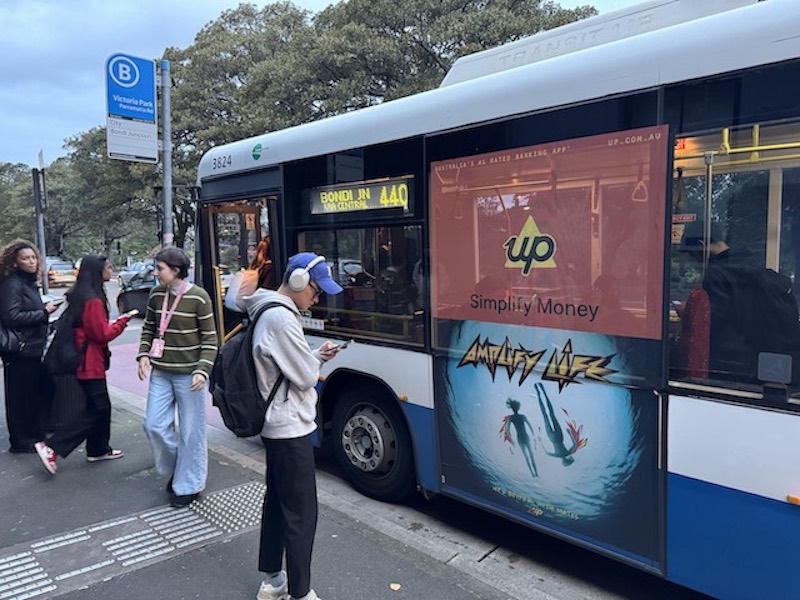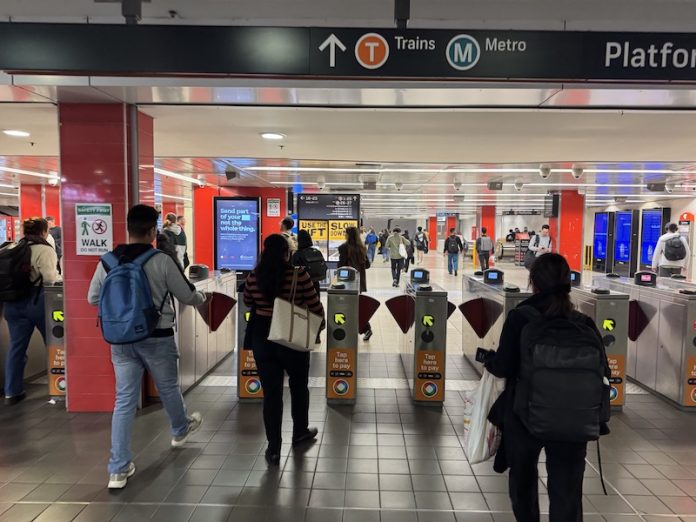International students struggling to pay 50 per cent more than domestic students for public transport are dodging fares and risking big fines.
More students at the University of Sydney (USYD) are not tapping their opal cards when getting on public transport as fare evasion becomes a way for students to deal with cost of living pressures.
International student Eva Tsai said the situation was a “fight back” to the fare discrimination against international students, as the fare is double that of domestic students.
“I don’t think the government of NSW is taking care of the students, because all other states in Australia have concessions on transportation for international students,” she said, adding that she was forced to “fare evade” just to survive the high cost of living in Sydney.
“I can’t afford the cost of bus and trains there and back; it would have had a huge impact on my daily living expenses. I figured it was worth
the risk of a fine, and I never got caught.”
University Postgraduate Representative Association (SUPRA), is demanding travel concessions for part-time and international students.
SUPRA says NSW is the only state that does not offer discounted travel for international students, and this needs to change.
The petition of the Fair Fares campaign, which exceeded 20,000 signatures, went before the NSW parliament in March last year. SUPRA President Weihong Liang told Honi Soit that the campaign was to expand beyond the University of Sydney with a focus on bringing other student bodies across NSW.
The petition also gained support from Greens MP Jenny Leong who presented it to the parliament.
“Transport concessions are more important than ever for people who are studying,” said Ms Leong. “The costs of transport, housing, food and daily essentials are at an astronomical level, with many students facing a crisis.”
Despite pressure from the Fair Fares campaign, the Minister for Transport Jo Haylen has not given any support to the campaign, responding: “Under NSW law, full fee-paying overseas students are not eligible to receive concession travel.”

Leco Li, who studies at USYD as an international student, catches the train to university every day.
“I don’t have any support from my family, I have to work as much as my student visa allows to pay my expenses,” she said. “Since most of my courses start at the peak time of the fare, I sometimes skip classes or get up early to skip the peak hour.”
SUPRA lodged a submission to the Independent Pricing and Regulatory Tribunal (IPART) in September last year.
IPART conducted an investigation into Opal fare and drafted a recommendation to the State Government to extend the transport concession scheme. Its final report, sent to the Minister on October 31 last year, was released on its website on November 12. The IPART report reveals public transport fares increased by up to 4 per cent on January 1.
Soaring living costs squeeze budgets for transport
Due to rising housing and grocery prices, the need for public transport concessions for international students is urgent.
Anglicare Australia executive director Kasy Chambers said in an interview with SBS that Australia’s housing crisis is the worst it has ever been. The annual rental affordability snapshot conducted by Anglicare Australia shows there were no affordable rental listings for students to find affordable housing.
And supply chain expert David Leaney told Yahoo that daily costs, like groceries and transport, will likely increase due to Donald Trump’s new tariffs. “The bad news is there is an impact to Australian consumers on cost of living from Trump’s love affair with tariffs,” Mr Leaney said.
USYD international student Crystal Chen said rising living costs are suffocating her.
“My rental fee is $730 per week, so the expenditure per month is pretty heavy for me,” she said. “As an international student who doesn’t get a concession on an opal card, it is really hard to keep up with the living standard in Sydney. Not to mention my weekly grocery shopping consumption, this burden will only weigh more heavily in the current climate, so I hope at least we can get concessions on transport.”


